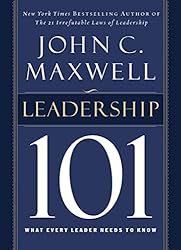Samuel Langhorne Clemens (November 30, 1835 – April 21, 1910),[1] known by his pen name Mark Twain, was an American writer, humorist, entrepreneur, publisher, and lecturer. He was lauded as the “greatest humorist this country has produced”,[2] and William Faulkner called him “the father of American literature”.[3] His novels include The Adventures of Tom Sawyer (1876) and its sequel, the Adventures of Huckleberry Finn (1884),[4] the latter often called “The Great American Novel”.
Twain was raised in Hannibal, Missouri, which later provided the setting for Tom Sawyer and Huckleberry Finn. He served an apprenticeship with a printer and then worked as a typesetter, contributing articles to the newspaper of his older brother Orion Clemens. He later became a riverboat pilot on the Mississippi River before heading west to join Orion in Nevada. He referred humorously to his lack of success at mining, turning to journalism for the Virginia City Territorial Enterprise.[5] His humorous story, “The Celebrated Jumping Frog of Calaveras County”, was published in 1865, based on a story that he heard at Angels Hotel in Angels Camp, California, where he had spent some time as a miner. The short story brought international attention and was even translated into French.[6] His wit and satire, in prose and in speech, earned praise from critics and peers, and he was a friend to presidents, artists, industrialists, and European royalty.
Twain earned a great deal of money from his writings and lectures, but he invested in ventures that lost most of it—such as the Paige Compositor, a mechanical typesetter that failed because of its complexity and imprecision. He filed for bankruptcy in the wake of these financial setbacks, but he eventually overcame his financial troubles with the help of Henry Huttleston Rogers. He eventually paid all his creditors in full, even though his bankruptcy relieved him of having to do so. Twain was born shortly after an appearance of Halley’s Comet, and he predicted that he would “go out with it” as well; he died the day after the comet returned.
Twain began his career writing light, humorous verse, but he became a chronicler of the vanities, hypocrisies, and murderous acts of mankind. At mid-career, he combined rich humor, sturdy narrative, and social criticism in Huckleberry Finn. He was a master of rendering colloquial speech and helped to create and popularize a distinctive American literature built on American themes and language.
Many of his works have been suppressed at times for various reasons. The Adventures of Huckleberry Finn has been repeatedly restricted in American high schools, not least for its frequent use of the word “nigger”,[73] which was in common usage in the pre-Civil War period in which the novel was set.
A complete bibliography of Twain’s works is nearly impossible to compile because of the vast number of pieces he wrote (often in obscure newspapers) and his use of several different pen names. Additionally, a large portion of his speeches and lectures have been lost or were not recorded; thus, the compilation of Twain’s works is an ongoing process. Researchers rediscovered published material as recently as 1995 and 2015.[45][74]


















